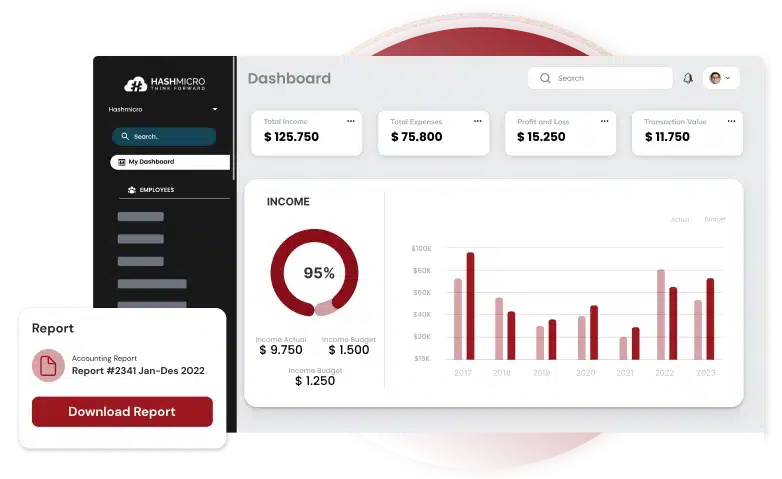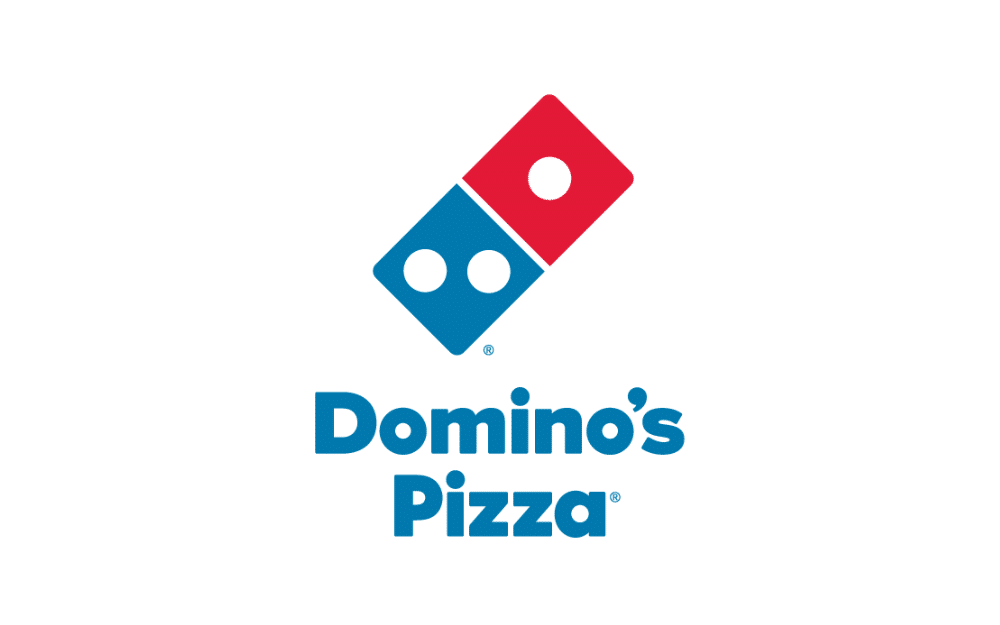In today’s rapidly evolving business landscape, the one-size-fits-all approach to management software is becoming increasingly inadequate. Businesses across various industries face unique challenges and require specialized functionalities to thrive. This article delves into the necessity of customization and provides a comprehensive guide for successfully tailoring business management software to industry-specific needs.
The Problem
While convenient and affordable, generic business management software can hold businesses back. These all-purpose solutions try to be everything to everyone but often lack the depth needed for specific industries.
Here’s why generic software can be a problem:
- Industry Misfit: “These programs offer a wide range of features, but they may not be the right ones for your industry. Imagine a manufacturer stuck with a generic inventory system that doesn’t handle raw materials or just-in-time ordering,” shared the CEO at SafeSleeve, Cary Subel.
- Workflow Woes: Every industry has its way of doing things. Generic software might not be flexible enough to adapt to these unique workflows, forcing businesses to work around the software instead of vice versa.
- Missed Opportunities: “Without the right tools, businesses can miss efficiency gains and optimization opportunities. For example, a healthcare facility with a basic patient data system might struggle to track trends and improve patient care,” shared the cofounder of GymNation, Ant Martland.
The result? Frustration, wasted time, and a business that isn’t running at its full potential.
The Solution

Generic software offers a broad range of features, but it often falls short of addressing the specific needs of different industries. Customization steps in to solve this challenge. By allowing businesses to tailor software to their unique workflows and data requirements, customization unlocks significant advantages.
Here’s how customization empowers businesses:
Enhanced Efficiency and Productivity: Customized software streamlines workflows specific to an industry. This reduces manual tasks, saves time, and allows employees to focus on higher-value activities. A McKinsey & Company report suggests that companies can improve their productivity and efficiency by 10-15% by investing in custom-made technology solutions.
Improved Data Management and Reporting: “Customization enables businesses to capture and analyze industry-specific data points. This leads to better reporting with insights tailored to their decision-making needs,” shared the Editor-in-Chief at Flawless Intuition, Ava Flores.
Elevated User Experience: A user interface designed for a specific industry makes the software intuitive and easy to use for employees, leading to higher adoption rates and improved satisfaction.
Competitive Advantage: “By optimizing workflows and leveraging data effectively, customized software positions businesses to make data-driven decisions, gain operational excellence, and ultimately outperform competitors,” shared the CEO at Breakout, Alex Miningham.
Customization Strategies
“Management software offers a powerful suite of tools, but every organization has unique needs. Customization bridges this gap, transforming generic software into a finely tuned system that perfectly aligns with your workflows,” says the VP of Marketing at LeaseAccelerator, Janet Sifers. The following are the key strategies to achieve successful customization.
Identifying Your Needs
The first step is to understand how your team currently works. Analyze your existing workflows and identify areas that could benefit from improvement. Consider these questions:
- What repetitive tasks slow us down?
- How can we improve collaboration and information sharing?
- What data points are most important for making informed decisions?
Additionally, consider industry-specific data you need to track and reports you need to generate. Finally, gather feedback from users within your organization about their preferences and challenges with the software.
This analysis will form the foundation for effective customization.
Customization Options
Many management software solutions offer built-in customization features. These might include:
- Creating custom fields to capture specific data relevant to your industry.
- Designing personalized dashboards to highlight key performance indicators (KPIs).
- Automating repetitive tasks to free up employee time.
For even greater flexibility, consider user-friendly low-code/no-code platforms. These platforms allow users with minimal coding experience to build custom applications and workflows seamlessly integrating with their existing software.
Finally, third-party integrations can fill specialized gaps. Many management software solutions offer open APIs (application programming interfaces) that allow you to connect them with other tools and services your team uses regularly.
Partnering with IT
“While customization offers exciting possibilities, involving your IT team is crucial. IT specialists ensure that any changes maintain the software’s integrity and security. They also provide ongoing maintenance and support to keep your customized system running smoothly and up-to-date,” says the founder of VPSServer, Robert.
Case Studies: How Tech Transformed Business Giants
These examples showcase how Nike, Walmart, and Domino’s leveraged technology to address challenges, enhance customer experience, and achieve remarkable success.
Nike

Nike, a leader in sportswear, embraced digital transformation to become a more direct-to-consumer brand. They ditched wholesale partnerships (previously 80% of their profit!) to build a robust e-commerce platform.
They also created mobile apps like Nike Run Club and Training Club, fostering a fitness community and extending their brand beyond just selling shoes and clothes. This focus on customer experience has boosted their e-commerce sales to 43%, with expectations to reach 50% by year-end.
Walmart

Retail giant Walmart faced the challenge of innovating and digitizing the shopping experience. They invested heavily in tech, partnering with Google for voice-enabled commerce and Microsoft for cloud computing. They strengthened their social media presence and embraced omnichannel retailing to cater to younger generations.
Back-office operations also received a tech upgrade, including supply chain modernization and AI-powered business analytics that improved efficiency and reduced costs. This multi-pronged approach transformed Walmart into a highly technological company.
Domino’s Pizza

Global pizza chain Domino’s experienced a sharp decline in popularity in 2008. To bounce back, they embraced technology as a critical differentiator. Domino’s Anyware allows customers to order pizza through various channels, including social media platforms like Twitter! This convenience is powered by AI and machine learning-powered chatbots that streamline ordering and personalize the experience.
During the pandemic, they further innovated with “Carside Delivery,” a contactless option that caters to safety concerns. By focusing on tech-driven customer service, Domino’s stock price skyrocketed from $5.95 in 2008 to $396.96 today.
The Future of Customization
Imagine software that tailors itself to your exact needs, anticipating your actions and preferences. This future of customization is closer than ever, thanks to artificial intelligence (AI) and machine learning (ML). These powerful technologies are transforming how software personalizes the user experience.
For instance, in point-of-sale (POS) transactions, AI can analyze vast user data, including past sales history, product preferences, and customer behavior. By learning from this data, AI can predict what actions staff might take next and automatically adjust the POS system software interface or features accordingly.
For example, a POS system might use AI to recommend upsells or complementary products based on customers’ purchasing. This can lead to increased sales and a more streamlined checkout process.
Machine learning algorithms continuously learn and improve over time. As they process more user data, they become even more adept at personalizing the experience for staff and customers. This ongoing learning ensures that POS software meets your evolving needs and preferences.
AI and machine learning hold immense potential to revolutionize software customization, creating a future where technology feels less like a tool and more like a personal assistant.
Embracing Innovation: Harnessing Technology for Industry-Specific Solutions
As businesses navigate the dynamic currents of today’s market, innovation stands as the cornerstone of success. Yet, in an era where adaptation is key, off-the-shelf solutions often fall short of meeting the nuanced demands of diverse industries. The path to sustainable growth lies in the strategic customization of business management software, a journey paved with innovation and tailored solutions.
Challenges Demand Solutions
The landscape of modern commerce is marked by a tapestry of challenges, unique to each industry. From supply chain complexities to regulatory compliance, businesses grapple with multifaceted obstacles that demand bespoke solutions. Off-the-shelf software, while offering a semblance of convenience, fails to address these intricacies, leaving gaps in functionality and efficiency.
The cofounder of Assertive Media, Daniel Foley, says, “Consider a logistics company reliant on conventional software for fleet management. Such systems, designed with generic features, struggle to optimize routes based on industry-specific variables like load capacity, fuel efficiency, and delivery timelines. The result? Suboptimal operations, inflated costs, and diminished customer satisfaction.”
Tailoring Solutions to Industry Needs
“Customization emerges as the beacon of hope amid these challenges, offering a path to unlocking the full potential of business management software. Organizations can transcend limitations and achieve unparalleled efficiency by tailoring solutions to industry-specific requirements,” says the Community Content Manager at Rehab Near Me, James Thomas. At the core of this paradigm shift lies a comprehensive understanding of operational workflows and data intricacies. By conducting a meticulous assessment of existing processes, businesses can pinpoint areas ripe for improvement and innovation. This introspective approach lays the groundwork for informed customization strategies, ensuring that every modification aligns with overarching objectives.
The Power of Strategic Customization
“Customizing strategies can really boost businesses in many ways, bringing big changes to how they operate, handle data, and interact with customers. When companies use customizable features in their software, they can shape it to fit their specific needs and ways of doing things. This makes tasks smoother and frees up time for new ideas. Imagine a factory using custom inventory software. With features like live data analysis and forecasting, the system can predict when more supplies are needed, keeping just the right amount in stock. This means less waste and quicker responses to changes in the market, helping the business stay ahead of the competition,” says the CEO at eSIMX, Yaoqi Lyu.
Exploring the Benefits of Strategic Customization
The customization of business management software is not merely about tweaking a few features; it’s about strategically tailoring every aspect of the software to align with industry-specific requirements. This strategic approach to customization holds the key to unlocking the full potential of management software and addressing the nuanced challenges faced by diverse industries. Here are some key benefits of strategic customization:
- Optimized Workflows: One of the primary advantages of strategic customization is the ability to optimize workflows according to industry-specific processes. By aligning the software with the organization’s workflow, businesses can minimize inefficiencies and maximize productivity.
- Data Insights: Strategic customization enables businesses to capture and analyze industry-specific data points, providing valuable insights for decision-making. For instance, a healthcare facility can customize its management software to track patient outcomes, monitor trends in treatment efficacy, and identify areas for improvement in patient care.
- Enhanced User Experience: “Customizing the user interface and functionality of management software enhances the overall user experience. Businesses can increase user adoption rates and productivity by designing intuitive interfaces tailored to the specific needs of each industry,” shared the CEO at Mattress Next Day, Martin Seeley.
- Competitive Advantage: Strategic customization of management software can provide businesses with a significant competitive advantage. By optimizing workflows, harnessing data insights, and enhancing the user experience, organizations can differentiate themselves from competitors and position themselves as industry leaders.
- Scalability and Flexibility: Customized software solutions are inherently more scalable and flexible than off-the-shelf alternatives. As businesses grow and evolve, their software needs may change. With strategic customization, organizations can easily adapt their management software to accommodate new processes, emerging technologies, and evolving industry trends.
Wrapping Up: The Customization Imperative
In conclusion, customization is no longer a luxury but a necessity for businesses striving to thrive in today’s competitive landscape. Organizations can unlock unprecedented efficiency, productivity, and innovation by tailoring management software to their specific industry needs. Embracing customization is not just a choice; it’s an imperative for success.
To embark on your customization journey, consult with software experts, and leverage the resources available to guide you through the process. Remember, the key to success lies in understanding your unique needs and harnessing the power of customization to drive your business forward.
To help you embrace customization, HashMicro offers comprehensive cloud ERP software for all business needs. With free customization, it can suit your requirements and streamline your business operation. Try the free demo now!
Warning: Undefined array key "med" in /home/hashmicr/public_html/blog/wp-content/plugins/insert-headers-and-footers/includes/class-wpcode-snippet-execute.php(419) : eval()'d code on line 281













